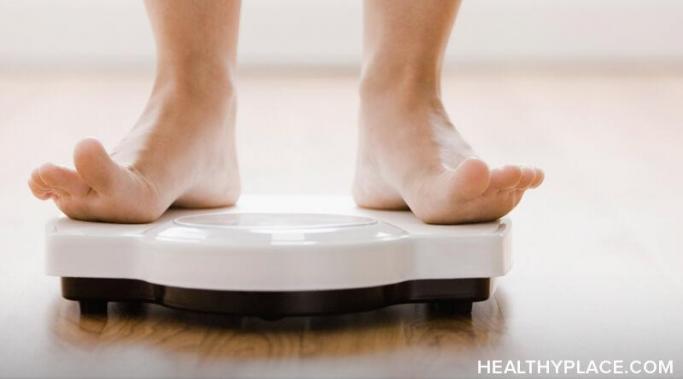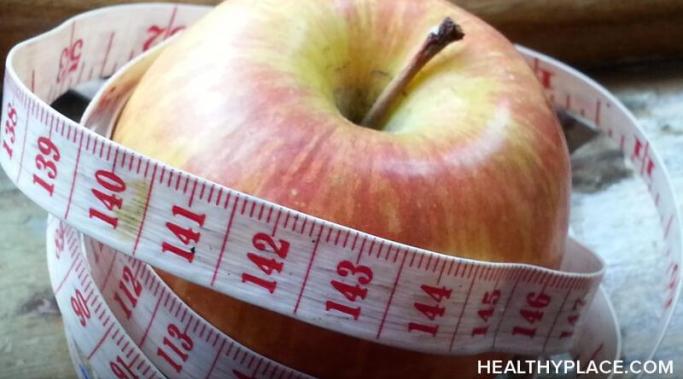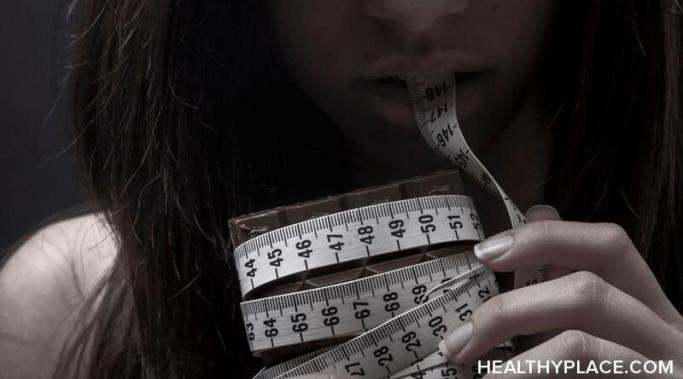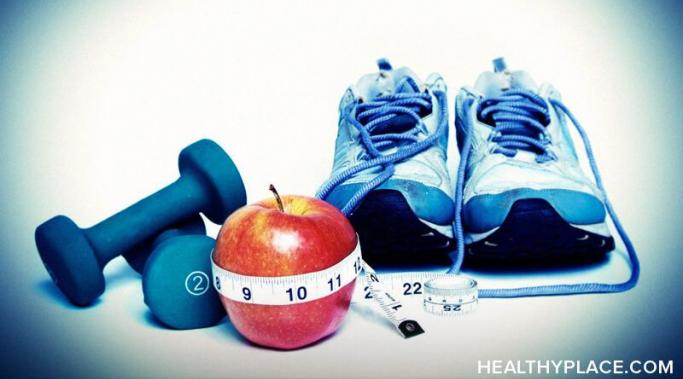Over the past week, I have been reflecting on the acute but nuanced complexity of living in a woman's body. (That is, anyone who identifies as a woman, including those in the lesbian, gay, bisexual, transgender, queer, plus [LGBTQ+] community.) This isn't a new revelation, of course. I've written about how sexism fuels eating disorder behaviors and my own experiences to corroborate that. But I often shove any potential threat of bodily harm, control, or objectification to the margins of my subconscious in order to function as a human. Most women I know default to this coping mechanism as well. However, thanks to a recent global controversy, I (and countless others) am once again forced to reckon with the complexity of living in a woman's body.
Glamorization of Eating Disorders
Confession: sometimes, I'm afraid of complete eating disorder (ED) recovery. What does this mean exactly? It's hard to articulate, but there is a small (albeit influential and persistent) voice in the back of my head that warns me not to lose the ED behaviors I relied on for so long. As irrational as this might sound, I feel a sense of comfort and reassurance in knowing I can re-access the eating disorder anytime I need it.
This might seem like a bold, hyperbolic claim, but it just so happens to be true: I have no regrets about my eating disorder. Of course, there are some behaviors I am not proud of, relationships I have worked fiercely to restore, and memories I still flinch at. But in terms of actual regret, I simply think it's a wasted emotion. While I have absolutely no desire to relive those 15 years of battling anorexia, this formative chapter in my life transformed me into who I am right now—a person for whom I feel genuine love and respect. So if you'll indulge me for a few minutes, I will unpack why I have no regrets about my eating disorder.
The phrase "clean eating" is often used in wellness circles to denote a preference for natural, organic foods over artificial, processed ingredients. At face value, this is undeniably beneficial. After all, the human body requires essential nutrients to function, many of which come from vegetables, fruits, and other whole foods. It's important to be mindful of this. However, I feel using the word "clean" to talk about eating habits is problematic. In extreme cases, I worry it could even influence eating disorder behaviors. In my humble opinion, clean eating is not healthy—it's a harmful trend with potentially serious consequences.
Body dysmorphia is a mental health condition that will impact an estimated one in 50 people over the course of a lifetime.1 In some cases, those with body dysmorphia also suffer from eating disorder behavioral patterns such as caloric restriction, compulsive exercise, binge-purge cycles, or obsession with weight. The earliest signs of body dysmorphia often manifest in adolescence,2 and anyone can be at risk—no matter their gender pronouns, sexual orientation, body composition, or ethnic background. Here is what you should know about body dysmorphia in case you (or a loved one) are exhibiting symptoms of this mental illness.
One frequent trap I fall into when I become too complacent in eating disorder recovery is an urge to romanticize the past. I reflect on all those years I was consumed by anorexia with a kind of nostalgia that whispers, "Remember how in control you felt back then? Remember the rush of satisfaction that came each time you skipped a meal? Remember the sense of power that intensified with each mile you ran on the treadmill? Remember how proud you were to have a small, narrow body? Don't you want to feel like this again?"
When I first stumbled upon actress and activist Jameela Jamil's "I Weigh" social media account two years ago, I breathed an audible sigh of relief. Here was a celebrity using her enormous platform to raise awareness to the overlooked truth that humans are worth more than the size and shape of their bodies.
Lately, it seems like my social media feeds are overrun with weight-related memes about how many pounds have been gained in self-quarantine; but, it's worth noting for the record that all those weight-related memes are not funny to everyone. As someone who is on a lifelong mission to recover from my eating disorder—and continues to face body image distortions—I know firsthand just how toxic these weight-related memes can be. While I understand the vast majority of posts are meant to be humorous and lighthearted, I cannot overlook the harmful effect such messages could have on those who already fixate on their bodies. So it's important to remember, those weight-related memes are not funny to everyone.
Competitive sports can create poor body image problems which can lead to eating disorders. There are reasons why this happens to both men and women, and there are ways to lessen poor body image and eating disorders in competitive sports.
Eating disorder recovery is arduous enough on its own, but add in the harmful reality that some eating disorder behaviors are endorsed by wellness culture, and healing from this issue can seem downright impossible at times.









